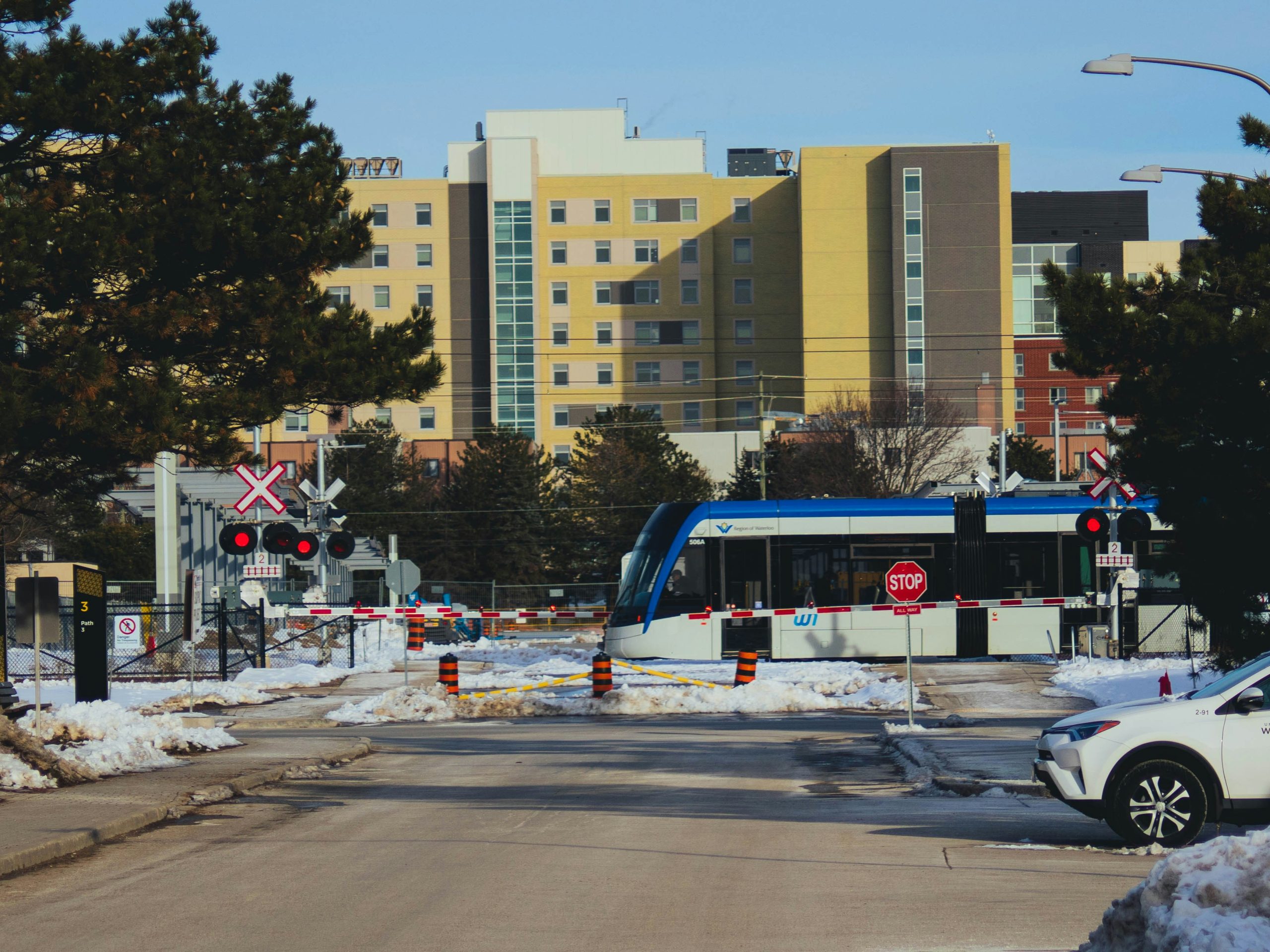Featured Guest
You’ll find this guest among our growing roll of Urban Champions.
-

Shivani Chaudhry
Executive Director, Housing and Land Rights Network
-

Paula C Marques
Lisbon City Councillor
-

Michel Tremblay
CFO and Senior Vice-President, Corporate Services, CMHC
-

Leilani Farha
Global Director, Make the Shift
-

Brennan Rigby
Project Lead, Shift Aotearoa
5 Key
Takeaways
A roundup of the most compelling ideas, themes and quotes from this candid conversation
One prescription for COVID, many inequalities and a path forward
Our international panelists confirmed that the primary prescription for the global pandemic was the same: “to stay safe, stay home”. COVID-19 has made absolutely clear the inextricability of adequate housing and life, health and safety – this is the basis of the Right to Home. COVID has exposed existing vulnerabilities and systemic inequalities faced by the many who cannot follow this simple guideline because of a lack of safe, adequate housing. Homelessness, domestic violence and the precarity of migrant workers existed before the pandemic but could a rights-based approach to housing finally provide lasting solutions?
Early COVID responses – a change in political will or response to necessity?
Governments across the globe have responded to the pandemic in vastly different ways, but each of our panelists spoke of some similar initial emergency responses implemented by governments to meet the immediate needs of those without a home. In New Delhi, some people experiencing homelessness were provided temporary shelter and meals, though many migrant workers remained stranded without employment, housing, or transportation. In Lisbon, rent collection was suspended for public housing and short-term rental activities (e.g., Airbnb) were halted. In the wake of COVID-19, early interventions such as these are interpreted by some as a demonstration of the missing political will that has allowed homelessness and housing crises to deepen around the world. Leilani Farha attributes these actions to a new awareness that adequate housing is a matter of life and death and is a necessity for all.
From emergency response to a secure housing future – what needs to change?
In addition to sparking an immediate emergency response for those without housing, the pandemic has invited a critical examination of housing policies and who holds decision-making power. Both land rights activist Shivani Chaudhry and Lisbon City Councillor Paula Marques revealed that the supply of social rental housing is clearly insufficient. But all panelists warn against falling back into the needs-based approach that focuses only on housing for the most vulnerable rather than an equity-based approach. A right to housing mentality is what is needed to protect today’s unhoused populations and future generations.
The need to get COVID recovery right
Panelists all expressed concern about approaches to post-COVID economic recovery and how it might impact housing and homelessness. For Shivani Chaudhry, a strong emphasis on infrastructure and development projects could contribute to displacement and homelessness. Michel Tremblay agreed that decisions on economic recovery will need to take into account the right to housing. There was consensus that strictly market-based approaches will not work. In addition to the creation of more affordable public housing, regulation of the housing market through rights compliance will be necessary.
Can a human rights-based approach to housing hold governments accountable?
The Canadian federal government’s National Housing Strategy (NHS) includes an acknowledgment of housing as a human right – a right legislated in the National Housing Strategy Act. In their consultations, the federal government heard that people across Canada agree that all have a right to the dignity of an adequate home – such a right, enshrined in law, provides a clear mandate. Shivani Chaudhry acknowledged the role of the central government in India to realizing this right, but maintains that they must cede control to local governments to take necessary action. Equally necessary is the adoption of a more participatory approach to policy-making, ensuring that those with lived experience of homelessness have a place at the decision-making table.
Additional Reading & Resources
Brennan Rigby from New Zealand
https://www.make-the-shift.org/
https://www.theexistenceproject.ca/
https://victoriahomelessness.ca/
Full Panel
Transcript
Note to readers: This video session was transcribed using auto-transcribing software. Manual editing was undertaken in an effort to improve readability and clarity. Questions or concerns with the transcription can be directed to events@canurb.org with “transcription” in the subject line.
Full Audience
Chatroom Transcript
Note to reader: Chat comments have been edited for ease of readability. The text has not been edited for spelling or grammar. For questions or concerns, please contact events@canurb.org with “Chat Comments” in the subject lin
From Canadian Urban Institute: You can find transcripts and recordings of today’s and all our webinars at https://canurb.org/citytalk
12:00:59 From Abby S to All panelists : Here from Arkell Ontario (Guelph)
12:01:15 From Canadian Urban Institute : Welcome! Folks, please change your chat settings to “all panelists and attendees” so everyone can see your comments.
12:01:29 From Abby S : Here from Arkell Ontario (Guelph)
12:01:50 From tim rourke to All panelists : Okay, here is my big question for the afternoon; what is the point to talking about a right when there is no way to enforce that right? Tr
12:01:56 From Adriana Hurtado Tarazona : Hi from Bogotá, Colombia!
12:01:57 From André Darmanin : Hello from Vaughan
12:02:01 From Canadian Urban Institute : Let us know where you’re tuning in from!
12:02:01 From Pierrette J Cazeau to All panelists : Good Afternoon from Florida USA
12:02:02 From Renuka Satchithananhtan : Hello Everyone! Renuka Satchithananthan, Case Worker and Admin Coordinator at CERA.
12:02:06 From Pam Hadder to All panelists : Hello from Willow Place, Winnipeg ~ Pam
12:02:07 From André Darmanin : Hi again @Abby
12:02:10 From Angie Desmarais to All panelists : Hello from Port Colborne
12:02:16 From Canadian Urban Institute : You can find transcripts and recordings of today’s and all our webinars at https://www.canurb.org/citytalk
12:02:17 From Alynne Neault to All panelists : Good morning from North Vancouver Island
12:02:22 From Brendon McKay to All panelists : Hello from CMHA Ottawa in Ontario, Canada
12:02:26 From Alex Adams : Hi from Brampton!
12:02:28 From Negin Minaei : Good afternoon, Toronto
12:02:35 From Head Clacio to All panelists : hi from Winnipeg
12:02:40 From Vincent Merola to All panelists : Greeting from Moncton
12:02:40 From Margaret O’Dwyer to All panelists : Cheers from Bayside, New York!
12:02:43 From Kimberley Sproul : Here from Kitchener, Ontario, Canada
12:02:46 From Danielle Jones to All panelists : Ottawa!
12:02:46 From Mackenzie Venator : Hello from Fredericton, New Brunswick! (UWaterloo Political Science Student/ Co-Op student at CMHC’s Innovation Division)
12:02:48 From Canadian Urban Institute : Keep the conversation going # right2housing #citytalk @canurb
12:02:56 From Abby S : @Andre hey!!!
12:03:02 From Ahmed Mohammed Moola to All panelists : Good Evening from Johannesburg South Africa
12:03:04 From Yvonne Kelly to All panelists : Hello Everyone! From Affordable Housing Coalition of York Region @R2HYorkRegion
12:03:08 From Sarah Hunn to All panelists : Hello from Victoria, BC 🙂
12:03:27 From Canadian Urban Institute : #right2housing #citytalk @canurb
12:03:31 From Durstyne Farnan to All panelists : Thank you for this opportunity.
12:03:45 From Casuncad Niko : Hello! Joining from Tkaronto. Excited to listen in on the conversation
12:03:56 From Canadian Urban Institute : Folks, please change your chat settings to “all panelists and attendees” so everyone can see your comments.
12:04:03 From Julieta Perucca : For those of you who have seen PUSH and want to know more, the filmmaker Fredrik Gertten and Leilani Farha, the Global Director of The Shift have started a Podcast! You can listen here: https://open.spotify.com/show/0Swm2H6r94CBGgfXYa2WKz?si=UFVw802FSIWuSZHo4geTsw
12:04:43 From Abby S : Can you send the link to the other movie Mary just mentioned? I can’t find it on canurb
12:05:40 From Lisa Helps to All panelists : The two films are listed here: https://canurb.org/right-to-home/
12:05:49 From Caroline Poole, CUI Staff : Today’s panelists from across the globe include:
Shivani Chaudhry from India: https://twitter.com/shivani_chdhry
Leilani Farha from Canada: https://twitter.com/leilanifarha
Michel Tremblay from Canada: https://twitter.com/CMHC_ca
Brennan Rigby from New Zealand: https://twitter.com/shiftaotearoa
Paula C. Marques from Portugal: https://www.facebook.com/Cidad%C3%A3os-por-Lisboa-77670111355
12:05:59 From Lisa Helps to All panelists : Mary means the City of Victoria (rather than the City of Vancouver! 🙂 as a partner.
12:06:26 From Canadian Urban Institute : You can find links to the films here: https://canurb.org/right-to-home/
12:06:28 From Jennifer Bisley to All panelists : Hello from Victoria, BC.
12:06:31 From Lisa Helps to All panelists : Mayor Helps from Victoria tuning in from Lekwungen Territory, City of Victoria.
12:07:08 From Canadian Urban Institute to Lisa Helps and all panelists : HI, Mayor Helps! Please change your settings to all panelists and attendees if you would like to reach the attendees as well.
12:07:15 From Abby S : Thank you @canurb
12:07:20 From Alynne Neault : Aboriginal Outreach Housing worker – Campbell River BC – happy to be here
12:07:21 From Lisa Helps to All panelists : Right!
12:08:17 From Caroline Poole, CUI Staff : Welcome all! Please change your chat setting to “All panelists and attendees” so everyone can see your comments.
12:08:26 From Lisa Helps : Hi all. Mayor Helps here from Lekwungen Territory, City of Victoria. Mary means City of Victoria as a partner (as opposed to City of Victoria). We’re happy to support this important national conversation.
12:08:40 From Laurel Davies Snyder : Hello from Stratford, ON.
12:08:45 From Lisa Helps : NB as opposed to City of Vancouver 🙂
12:09:41 From Chris Bell : Greetings from Calgary, Alberta! =)
12:10:48 From Alison James to All panelists : Also joining from Victoria, morning all.
12:10:51 From Carolyn Whitzman : Thanks CUI for keeping the momentum going on the Right to Housing! listening from the unceded territory of the Algonquin Anishinabe Nation i.e. Ottawa.
12:11:21 From Lisa Helps : Thanks Mary 🙂
12:11:24 From Abby S : We all KNOW Lisa Helps!!!! and where she is from!
12:11:57 From Kai Okazaki to All panelists : Hello all, Kai Okazaki from City of Powell River, qathet Regional District, and Tla’amin Nation.
12:12:08 From Daniel LeBlanc to All panelists : Daniel from NGO Working Group on Homelessness in New York and at the UN
12:12:26 From Kaitlin Schwan to All panelists : Mayor Helps you are an amazing Right to Housing leader!!!
12:12:42 From André Darmanin : What a global cast!
12:12:48 From Canadian Urban Institute to Brennan Rigby(Privately) : HI ,Brennan! I think there is a little rustling coming from your mic when you speak. How tricky would it be for you to start using the mic from your device and not use your headset?
12:13:03 From Mary W Rowe to Lisa Helps and all panelists : sorry about that
12:13:29 From Canadian Urban Institute to Brennan Rigby(Privately) : If it’s not easy, no problem. we can still hear you, it’s just some noise coming with it.
12:13:35 From Callum Maguire : Hello from Comox BC
12:14:08 From George Tchanturia to All panelists : Hello, from Tbilisi, Georgia
12:14:08 From Brennan Rigby to Canadian Urban Institute(Privately) : I think I can limit that. I need to keep the headphones on or everyone in the house here will wake up 🙂
12:14:28 From Canadian Urban Institute to Brennan Rigby(Privately) : Ah! Of course! No problem. 🙂
12:16:24 From Lisa Helps to All panelists : No worries! As you say, it happens 😉
12:16:42 From Negin Minaei : Poor indoor air quality is a global problem, you can see it in rentals and basements in Toronto too.
12:19:17 From Negin Minaei : People in rentals in Toronto live with indoor temperature of 30 degrees and humidity of 60 and over, hotter than outside as often they don’t have AC and yet the general approach in construction industry is designing for cold seasons rather than looking at the long-term impacts of climate change and warming up the planet and cities.
12:19:29 From Ashley Michell to All panelists : Indigenous Housing Support Worker- Smithers B.C. – Thank you for having me, and I am very grateful to be here.
12:21:34 From George Tchanturia to All panelists : unfortunately, in my city, in Tbilisi the quality of air is poor outdoor as well
12:21:50 From Canadian Urban Institute : Welcome new joiners! Just a reminder to please change your chat settings to “all panelists and attendees” so everyone can see your comments.
12:24:28 From Tracy Tang : Indro Bhattacharyya
indro.bhattacharyya@peelregion.ca
Working on our advocacy strategy for improving affordability of housing here at the Region of Peel here in Ontario, Canada.
12:25:36 From André Darmanin : @tracy just noticed that a couple of weeks ago through a couple of my Peel colleagues. Kudos!
12:26:04 From Ashley Michell : Indigenous Housing Support Worker- Smithers B.C. – Thank you for having me, and I am very grateful to be here.
12:26:08 From Pat Petrala to All panelists : Greetings from White Rock/S. Surrey, BC modest homeless in Peninsula, yet need to have more than mere extreme weather shelter. Hope to secure longer term warp around site in light/industrial commercial space as businesses fold from covid. Anticipate more homeless in coming years. Business case understood yet NIMBY public fears not so good.
12:26:30 From André Darmanin : COVID has exacerbated housing, social and racial inequities.
12:29:12 From Margaret O’Dwyer to All panelists : What happens when global moratoriums on evictions expire? Even with stiumulus monies, people are getting further behind. This could be major!
12:29:48 From Canadian Urban Institute : Reminding attendees to please change your chat settings to “all panelists and attendees” so everyone can see your comments.
12:30:38 From Alynne Neault : Airbnb has contributed to the shortage of housing stock in my city(currently at a 0.4% vacancy rate). It’s also contributed to the escalating prices of rental stock.
12:31:01 From Amarpreet Guliani : This question is for Shivani. India has a complete lack of urban planning and governance at the municipal level. As a result, the cities are unable to create affordable housing and provide the citizens with basic necessities of life. Is the central government taking initiatives to make municipal governments more autonomous?
12:32:55 From Tracy Tang : Amarpreet, for what its worth I think it may depend on the state and compliance level. in Kolkata they have plenty of urban planning through the corporation, even public housing remnants like Bow Barracks. The question is how effective it is, and whether the actors in the market are held to account.
12:34:02 From André Darmanin : @alynne Which city?
12:37:16 From Pam Hadder : The lack of safe, affordable social housing was a huge issue in our city (Winnipeg, Canada) prior to COVID – agree with panelists how pandemic has cast light on existing issues – appreciate remarks about the homeless not having a place to “stay home, stay safe” – also much of our province’s supports are in an online format, appealing to and accessible to working, wealthier, educated populations – how do the most vulnerable, the poor, the homeless know about what is happening, how to get support etc. – also elderly that do not necessarily use or have access to technology (?) (Pam – Willow Place, family violence centre)
12:38:19 From André Darmanin : Yes, @Michel, we need more people involved in policy and ops with lived experiences in housing. (ahem). Although I’m 20+ years removed from (TCHC) social housing, it is a situation I’m experienced in.
12:38:20 From Alynne Neault : @andre – Campbell River BC
12:38:37 From Haseena Manek : To learn more about Leilani Farha’s work and The Shift, head to maketheshift.org
12:38:40 From Haseena Manek : Also, check out her new podcast with the Director of Push: https://open.spotify.com/show/0Swm2H6r94CBGgfXYa2WKz?si=UFVw802FSIWuSZHo4geTsw
12:39:33 From Neelu Mehta : The Union Cabinet Chaired by the Prime Minister, Mr. Narendra Modi has given its approval for developing affordable Rental Housing Complexes (AHRCs) for urban migrants/poor as a sub-scheme under Pradhan MantriAwasYojana-Urban(PPMAY-U)
12:40:29 From André Darmanin : @alynne. Thanks! 0.4% vacancy rate is really bad. Airbnb has taken a toll on many cities, but COVID has forced these hosts to put their properties/rooms on the rental market.
12:41:30 From Alynne Neault : @andre – thankfully yes, but unfortunately, they are being listed at market pricing which is unaffordable in my community. I have seen rents increase (on average) 40% in the past 12 months
12:42:35 From André Darmanin : @alynne You would think that more housing, the market would reflect the downward pressure on prices. Sadly, not so.
12:42:54 From OAA ConEd to All panelists : Great presentation
12:43:29 From Amarpreet Guliani : Cities in Canada, Edmonton being the first major municipality, have started to eliminate parking minimums as on-site parking is expensive and the renters or owners have to pay for the cost.
12:44:24 From OAA ConEd to All panelists : Just a quick comment if that’s okay. In the future, I think it would be of immense benefit for the audience if the key points could be on a PowerPoint presentation. Thank you!
12:44:24 From Cory Weagant to All panelists : that was the most authentic she’s not missing anything
12:44:30 From Cory Weagant to All panelists : Amen
12:46:13 From Rahul Mehta : Hello from Mississauga, ON! Thank you so much to the panel, particularly Leilani for your movement and clarity in the doc, “Push”. Our housing prices continue to rise out of control, with young people leaving in droves, even as job opportunities increase. Every form of health – human, natural systems, climate, economic, etc, depends on housing as a right, delivered, affordable, for all.
12:47:02 From Tracy Tang : @amarpreet, is that just tinkering at the edges of affordability? residents can’t necessarily rely on transit to get to work, learn, live, and play. how much does maintaining parking add to operating costs over the long-term after that initial investment upfront for construction and land acquisition?
12:47:14 From Marg Rose : As we ponder solutions, might it be helpful to propose different solutions, for the various LEVELS of homelessness in the housing policies, as one step? Dr Bernie Pauly articulated four levels here (see page 6) in a (sadly) 2013 report to the Greater Victoria Coalition to End Homelessness: https://victoriahomelessness.ca/wp-content/uploads/2013/09/GVCEH_ReportHousingSupports_FINAL.pdf
12:47:15 From David Crenna : It appears we need a rapid acquisition program within the existing under-occupied stock, of which there are about 1 million units sitting there today. New social housing has a role, but takes far too long to develop and occupy!
12:47:26 From Devyn Hanna : @andre and @alynne Not to mention these former Airbnb’s that are going up for rent currently are being put on the market for 6 month rentals. What happens after 6 months and Covid is no longer a threat to tourism and airbnb.
12:47:33 From Brian MacLean to All panelists : Another imperative right now is to reduce the carbon footprint of buildings including all forms of housing by retrofitting existing buildings to reduce their use of energy from fossil fuels. That imperative seems in tension with the need to finance & build more low-cost housing to guarantee everyone a home.
12:48:14 From Yvonne Kelly to All panelists : In Canada we have a National housing strategy but it is not a program of direct investment in building affordable and social housing as we had in the 90’s. Many people think we have a strategy now so we’re good but the funding is a drop in the bucket compared to the role our federal govt once had in building housing. How do we move the federal govt to accept this bigger responsibility and commitment?
12:48:15 From André Darmanin : Agreed @devyn. That is the million dollar question.
12:49:25 From Marko Curuvija : My organization is doing public engagement work all across the community here in Victoria advocating for permanent housing solutions (for the homeless). There is a huge sentiment of NIMBYism that creates an added barrier implementing permanent housing solutions. We also see a lot of lower level govts (ie municipal) refer upwardly to the provincial and federal govt for funding solutions instead of taking more direct action.
12:49:46 From André Darmanin : VC money continuing to seep into the startups with no understanding of the social atmosphere is a problem. Governments have to continue to regulate and lead.
12:49:59 From Neelu Mehta : For India : Affordable Rental Housing Complexes…schemed was announced by the Hon’ble Finance Minister on 14 May, 202. This scheme seeks to full fill the vison of ‘AtmaNirbhar Bharat.
12:50:04 From Alynne Neault : @devyn – exactly! My clients are all Indigenous which brings another dimension to the housing problems. Our city has done nothing to accommodate our unsheltered folks during the pandemic.
12:50:25 From Canadian Urban Institute : Keep the conversation going #right2housing #citytalk @canurb
12:51:00 From Marko Curuvija : My Question – Are there any examples globally of municipal govts. that have addressed homelessness both in housing and in getting public buy in (stigma)?
12:51:05 From David Crenna : It’s quite true that the regulatory barriers are the main ones that exist… They can be changed with the stroke of a pen, but lots of resistance to making that stroke…
12:51:32 From Marko Curuvija : Or even grassroots, community initiatives that are coordinated across multiple sectors
12:51:43 From Lisa Moffatt : I’d appreciate if panelists have thoughts on housing authorities who value housing based on consumer price index rather than the market.
12:52:00 From Chris Bell : In relation to Mary’s questions — what advice do folks have from community advocates, when it comes to navigating the opportunities and pitfalls of multi-level advocacy? Opportunities to advance the right to housing don’t seem come up in any straightforward way (j.e. a local council might be interested in the right to housing, while a provincial/subnational government might not be). Policy windows can open and close quickly, and the relationships between levels of government are often complex and opaque, making it hard to strategize.
12:52:44 From Cory Weagant to All panelists : I’m a person with lived experience with homelessness and know stigma first hand I know work with Marko and his organization The Existence Project to tell my story and experience with homelessness, housing and stigma around that. I feel involving people with lived experience is going to really have a different effect on how things operate and from that things can improve but it’s hard to fix something by guessing. instead of involving the voices of people with loved experience. I want to use my experience to empower others
12:53:04 From Cory Weagant to All panelists : now work*
12:53:11 From Canadian Urban Institute : You can find transcripts and recordings of today’s and all our webinars at https://www.canurb.org/citytalk
12:53:36 From Cory Weagant to All panelists : lived **
12:55:09 From Tracy Tang : @chris an alternative approach could be to advocate to embed the principles through changing ongoing operational housing programs and initiatives non which they are focused?
12:55:18 From Canadian Urban Institute : What did you think of today’s conversation? Help us improve our programming with a short post-webinar survey – https://bit.ly/3g5sJiO
12:55:26 From Tracy Tang : on, not non*
12:56:15 From Nicole Aylward to All panelists : I love the point Brennan just made! When we focus on those that are in the MOST need we effectively push people toward more desperate situations. Everyone has a right support when in need. Thanks for that
12:56:26 From André Darmanin : @chris. Like Michel stated, there needs to be more people working with lived experiences in the housing area. They, along with the appropriate experience, would have a much better understanding of housing policy and operations.
12:57:57 From Amarpreet Guliani : The City of Regina recently removed separation distance and maximum number of residents per unit requirements for all forms of residential care and group homes from its Zoning Bylaw to ensure that such restrictions do not violate the Charter and human rights.
12:58:32 From Brennan Rigby : Thanks Nicole. Leilani surfaced while she was here that under the ‘needs’ model, state housing tenants are under constant pressure to PROVE how hard their lives are! How little money they have… how many rentals they have looked at and been refused…
12:58:42 From Pam Hadder : Re: Brennan, appreciate the rights-based/human rights-based focus – in the family violence prevention sector where I work, there has been inadequate support to truly address the roots of violence and abuse. We know that family violence is a significant factor in homelessness. These “issues” of safety, housing, essentials for healthy life are all connected and are captured within human rights-based approaches. Prior to COVID our sector was already stretched to its limits, and with additional social pressures on people and the likelihood that we will be navigating health safety re: COVID for some time still, a human rights-based housing strategy is essential.
12:59:07 From Kris Leaman to All panelists : @Marko. On your comment on NIMBYism, is this reinforced by processes focussed on planning and design rather than community outcomes including social outcomes (opportunity costs and benefits)?
12:59:08 From Julieta Perucca : Hi Amarpeet, that is really interesting! The Shift and CUI are working with local governments to secure the right to housing in Canadian cities everywhere. We would love to hear more of what Regina is doing!
12:59:09 From André Darmanin : @amarpreet I don’t know about now, but while I worked with Brampton, I pushed for the removal of separation distances for group homes because it was a human rights issue.
12:59:17 From André Darmanin : It didn’t happen
12:59:51 From Pat Petrala to All panelists : A table of KEY concepts to consistently help frame the grassroots work/messages for advocacy and arguments taken
Select and pressure to each layer of decision makers;
So are affected by stories / values; others financial pro/con; business case;
Frugal health case; environmental case; parallels with human right to water etc.
13:00:01 From Julieta Perucca : I’d love to reach out, or if it is easier feel free to reach me at julieta@maketheshift.org!
13:00:46 From Negin Minaei : True, if one doesn’t have a proper work, they can’t have a proper house to live. If one doesn’t have a salaried job, s/he can’t rent a flat in Ontario! They don’t care how much money people have in their accounts, they only asks for payslips.
13:00:50 From Mirella Palermo : @andre Brampton is currently reviewing these policies from a Human Rights perspective
13:01:16 From André Darmanin : @mirella about time
13:01:29 From David Crenna : Have to be more careful about that now! Whole model needs review from health-protection perspective… Where through tecnology, structureal requirements, ventilation, etc.
13:01:48 From Marko Curuvija : dang this was rushed. I appreciated you all getting into focussing a rights based movement, would love to see this lengthened next time with this many guests..
13:02:18 From Leilani Farha to All panelists : I agree with shivani. and human rights based approach doesn’t mean no market based solutions. it means market based solutions must be rights compliant.
13:02:31 From Mirella Palermo : @Marko – agreed
13:02:35 From Leilani Farha : I agree with shivani. and human rights based approach doesn’t mean no market based solutions. it means market based solutions must be rights compliant.
13:03:42 From Paula C Marques : »I agree with shivani. and human rights based approach doesn’t mean no market based solutions. it means market based solutions must be rights compliant.» that´s it Leilani ! Thanks
13:03:44 From Brennan Rigby : Brennan Rigby: Brennan.rigby@communityhousing.org … https://theshiftaotearoa.wordpress.com
13:03:53 From Tracy Tang : so if we wanted one reference document for rights, to what should we look?
13:03:59 From Paula C Marques : so good to particiate!
13:04:11 From Paula C Marques : so good to see you again
13:04:13 From Kimberley Sproul : Thanks to all. I have been very grateful for people sharing their own questions and experiences. Panelists, thank you thank you thank you.
13:04:19 From Ashley Michell : Mesi Chyo (thank you)
13:04:19 From Brennan Rigby : Thank you all!
13:04:27 From George Tchanturia : Thank you very much for interesting panel.
13:04:29 From Julieta Perucca : https://www.make-the-shift.org/wp-content/uploads/2020/04/A_HRC_43_43_E-2.pdf
13:04:29 From Chris Bell : @ Tracy – https://undocs.org/en/A/HRC/43/43
13:04:29 From Rahul Mehta : Thanks everyone! 🙏🏽
13:04:29 From Joelle Lewis to All panelists : thank you!
13:04:30 From Erika Morton : Thank you to all the speakers and organizers!
13:04:30 From Robert Lastman to All panelists : Thanks, really interesting discussion. 🙂
13:04:32 From Neelu Mehta : Thank you so much. Please stay safe and healthy 🙂
13:04:32 From Leilani Farha : Thanks everyone! great convo!
13:04:32 From Pam Hadder : Thanks to all ~ Pam H.
13:04:33 From Callum Maguire : thank you
13:04:34 From Lise Bendrodt to All panelists : thank you
13:04:36 From Bhavik Thakkar : Thank you for a wonderful session!
13:04:37 From Faryal Diwan : Thank you!
13:04:38 From Amarpreet Guliani : Thank you for a wonderful discussion!
13:04:39 From Yvonne Kelly to All panelists : Thanks for your time and brilliance everyone!
13:04:42 From Margaret O’Dwyer to All panelists : Thanks!
13:04:43 From André Darmanin : thanks!
13:04:43 From Shona van Zijll de Jong : thank you!



